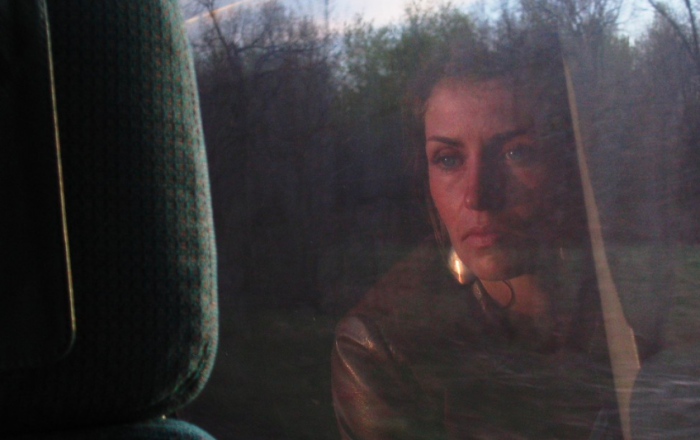“There’s been an accident.”
Why was this unfamiliar voice responding to my call on my boyfriend’s phone? Instant flood of panic and dread. Desperate reaching for reason. This can’t be so. My first thought was that he’d had a motorcycle accident as he was an avid rider. Fighting panic.
I manage to ask the voice—who identified itself as a police officer, “Is he in the hospital?”
“No.”
Turns out, he’d been killed cutting down a tree in his yard. How even to describe what those next moments were like? Falling off a cliff. Freaking out. I needed help. I stumbled downstairs in my robe calling for my roommate. She held me. I was in hysterics. Sobbing.
Suddenly, I found myself in a club I never wanted to be in. I would not wish this membership on my worst enemy. I felt like I would not survive. Life ahead without my beloved partner felt bleak.
The funeral at a military cemetery (he had been in the National Guard)—attended by my love’s family, dear friends, and workmates—was emotionally wrenching. “Taps” was played. Tears streamed. The American flag was folded and presented to a young member of the family. On the way driving home from the burial, I watched the first autumn leaves falling. And now…the rest of my life stretched ahead. Without him.
No person is ever prepared for this. That period of grief was the most map-less and desolate terrain I had ever found myself in. Like being tossed into a seething, dark ocean. Like stumbling along the edge of an abyss carrying a backpack laden with grief. It occurred to me, as I was driving to a friend’s a few days after the memorial, that I was in a state of PTSD. I mentioned this to my friend. She said, “Of course you are.”
Friends and family members reached out to help me in what ways they could. People sent me books and small, thoughtful gifts—candles, a leather-bound journal, a massage session. In the aftermath, (I divided time into pre-K’s death and post-K’s death), I wrote a lot. I actually posted a fair amount on Facebook. Which felt weird in a way. But my god, I needed a place to express my grief. I needed my community of human hearts, removed as they might be in Facebook-land, to know what I was going through. This community of family and friends was my lifeline. Many offered deeply heartfelt messages that sustained me. Friends sent me articles and books and suggestions on ways to deal with the pain.
Elizabeth Kübler-Ross describes stages of grief: denial, anger, bargaining, depression, acceptance. I think basically, yes, it’s like this. Though, certainly, each person has their own path. Deep grief is an intensely private place. There truly is no map. I felt so lost. So alone. So lonely. So desolate.
Joan Didion intimately knew of this kind of loss. In incisive, unadorned prose, she recounts in the aptly-titled The Year of Magical Thinking her experience of the sudden death by heart attack of her beloved husband. Didion writes, “Life changes in the instant. The ordinary instant.”
Exactly. I found myself asking, “Where did you go?” It’s perplexing. To intellectually comprehend that a person has died. That they are no longer available as an incarnate presence here on this mortal plane. But they were just here. Holding you, eating dinner with you, making plans with you. So, where did they go? Pieces of him were everywhere. There was his wristwatch ticking away on the kitchen table alongside our tickets for the upcoming Keb Mo concert.
“Grief turns out to be a place none of us know until we reach it. We anticipate (we know) that someone close to us could die, but we do not look beyond the few days or weeks that immediately follow such an imagined death. We misconstrue the nature of even those few days or weeks. We might expect if the death is sudden to feel shock. We do not expect this shock to be obliterative, dislocating to both body and mind. We might expect that we will be prostrate, inconsolable, crazy with loss. We do not expect to be literally crazy, cool customers who believe their husband is about to return and need his shoes.” ~ Joan Didion, The Year of Magical Thinking
You know you aren’t alone in the grief experience. No. We all get to do this. But you also know that you are alone. That no one knows your specific grief. This experience, this terrain is your own.
I often felt like the incessant pain, the constant churn in my stomach, was making me sick. It was dimming the light inside me. I missed his friendly, loving self so fiercely. For many months, years actually, the second I woke in the morning, he was right there. His face. The memory of him singing to me in the morning.
Why do we grieve so intensely? Intense grief is debilitating. It makes it hard to get on with one’s day. I have heard it said that our ability to grieve is balanced with our ability to love. And yes, upon opening ourselves to love, we open ourselves to suffering. The ability to love another, to become attached, to trust is fundamental to being human. As is the ability to grieve.
I knew I had to be, wanted to be, courageous. I knew I had to strive to have this experience be somehow useful to me and to how I show up in life. After all, I am still here among the living.
I found some solace in my yoga practice. Specifically, I found Yin yoga to be an effective way to soothe the jagged brokenness inside my heart. There was a particular teacher in whose class I found I could let my heart melt and could let the tears flow. The release was helpful. I joined the Grief Support Network. A friend invited me to sit and do Metta (practice loving-kindness) with her. I found some comfort in these experiences.
Yoga. Meditation. Sleep. Reading. Studying. Work. Visiting friends. Just trying to find my way back. For so many months I felt like glass. So fragile. Transparent. So vulnerable. I carried him with me through my days. I recognized how easy it would be to turn to alcohol as a way to dull the incessant pain. I intentionally did not succumb to that.
There were actually moments where I questioned the validity of my grief. I mean, this wasn’t a child I’d lost. My ever-practical father reminded me that I had to get over this, that unlike my uncle’s recent loss of his wife, it wasn’t like I had lost my spouse of many years. A friend compared it to the devastating loss of her cat. I wrestled with my anger in regard to these comparisons. I reminded myself that I needed to let others have their own experience and refrain from annoyance. I am me; what I felt was valid. Others’ experiences need not simulate mine.
I even felt some guilt in the self-centeredness of my grief.
It has been four and a half years. Amazing how time is. My love stepped off the train and onward time flew. It is not for me to know why. For a while, I wished I could have gotten off with him. I wanted us to be together, no matter what. I so desperately wanted to hold onto him. Ah, the lessons are hard. There is no obligation for life to turn out the way I want it to.
That was September 2015. Four and a half years later, there is still no day where I don’t think of him. But the raw despair is gone. I feel whole again. My innate sense of play is intact. Though I thought I never would, I have found a brilliant new love. We met online. We’re going on a year and a half now. He’s sincere and playful and loving and adventurous. I live in a vibrant community. I have so much open to me.
My heart has become more open to the grief that is ever-present in this world. Compassion alleviates personal pain.
Saying goodbye is so freaking hard. Yet, the train moves on. Time waits for no one.
I had a bite of pure sweetness, the nectar of love. Two of Buddha’s Noble Truths: There is suffering. There is the path to the end of suffering. Non-attachment.
I learned that I was stronger than I’d thought and that I had all that I truly need right inside me. That I had been given the extraordinary gift of being in love with and loved by a person. That I have many dear people in my life. Tattooed on my heart is the lesson of the temporal nature of relationships with living beings. I do believe it is a stronger self that has emerged.
~











Read 11 comments and reply